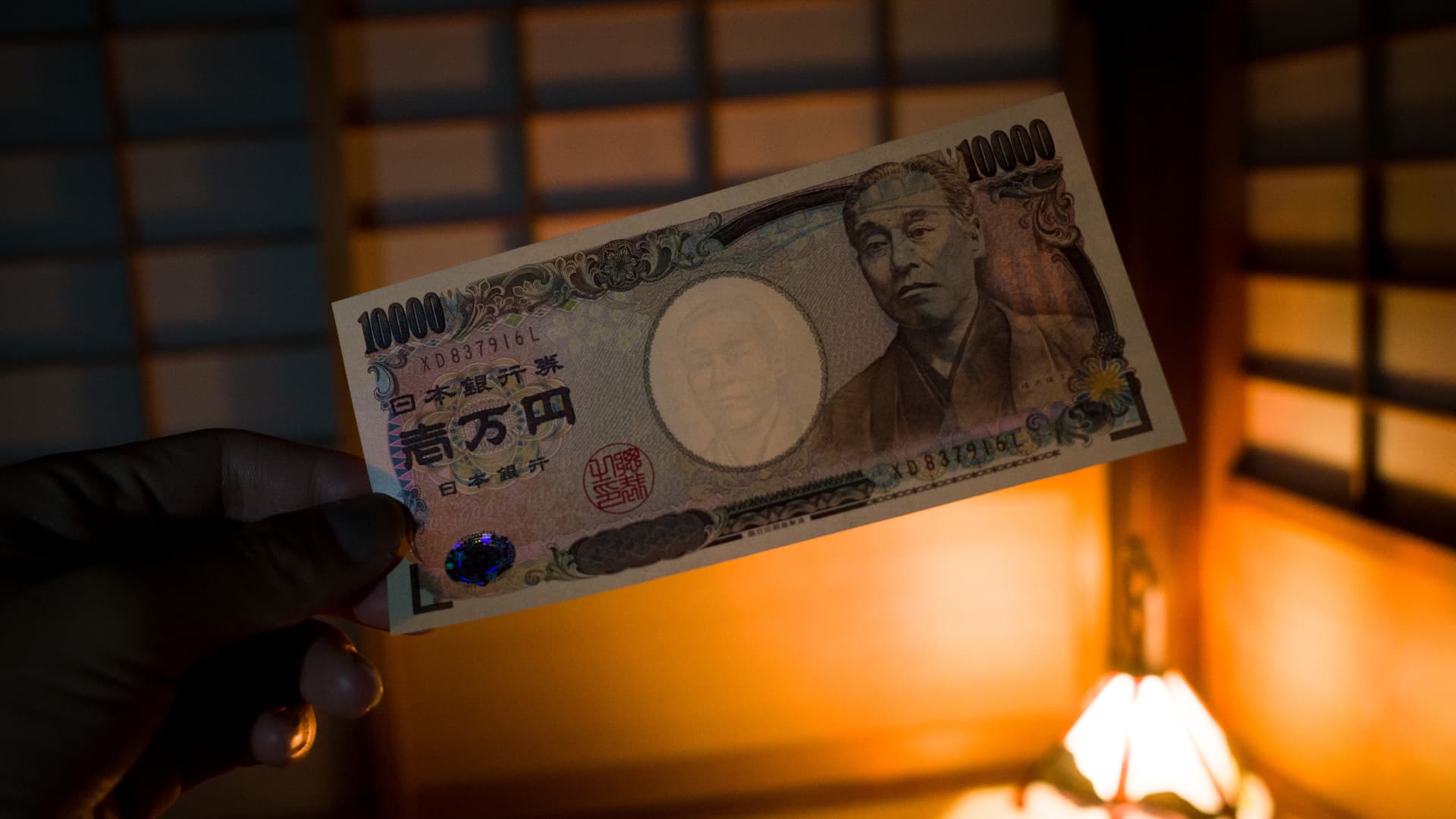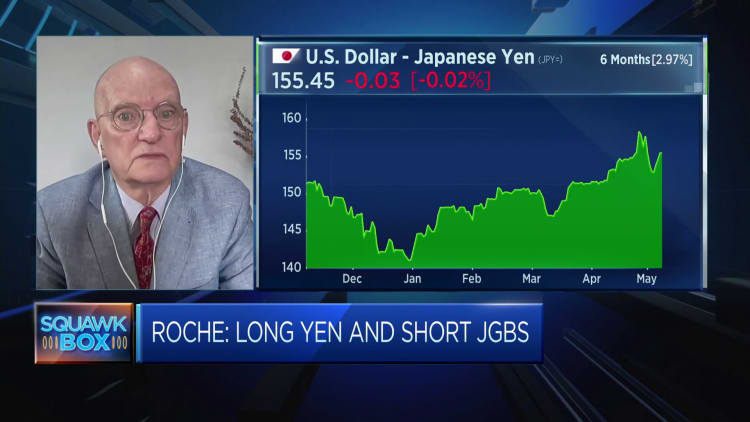Japan is not seeking a strong yen but a stable currency, David Roche says


Japan is not seeking a strong yen but rather aiming for a relatively stable currency, according to veteran investor David Roche.
The Japanese yen has been on a roller coaster ride, with the currency breaking past 160 against the greenback last week — steepest decline in more than three decades. It has since strengthened amid speculation about two interventions by Japanese authorities.
“The Japanese are not aiming at a particularly strong yen. I think they’re aiming at a relatively stable yen — they don’t want it to go through the floor anymore,” Roche, president and global strategist at Independent Strategy, told CNBC’s “Squawk Box Asia” on Thursday.
Japan has acted in way so as “not to create inflation, which undermines the governor of Bank of Japan.”
The weakness in the yen had persisted after the BOJ’s monetary policy decision in April and in spite of warnings from Japanese authorities.
Reportedly, Japanese authorities could have spent about $60 billion to prop up the yen after its sharp fall last week. The yen was last trading at around 155.61 against the dollar.
The summary of the BOJ’s latest policy meeting released Thursday revealed that the central bank was concerned that a sharply weaker yen risks driving up import prices.
“The recent depreciation of the yen and rises in prices, such as crude oil, have started to affect producer prices through an increase in import prices,” the BOJ policy board members said at their last meeting that concluded on April 26.
“While the yen’s depreciation is likely to push down the economy in the short run through price rises driven by cost-push factors, it could push up underlying inflation in the medium to long run” the members said.
The currency has languished alongside continued strength in the greenback as Federal Reserve rate cut expectations get pushed back.
Japan could not “possibly speak to have policy that really results in a strong yen unless they tighten monetary policy,” Roche said, adding that it would involve raising interest rates by at least 50 basis points and allowing “unsterilized intervention” of the yen.
“In other words, it shrinks the supply of domestic money. As far as I can see from the statistics, they’ve [Bank of Japan] done nothing like that,” Roche noted.










